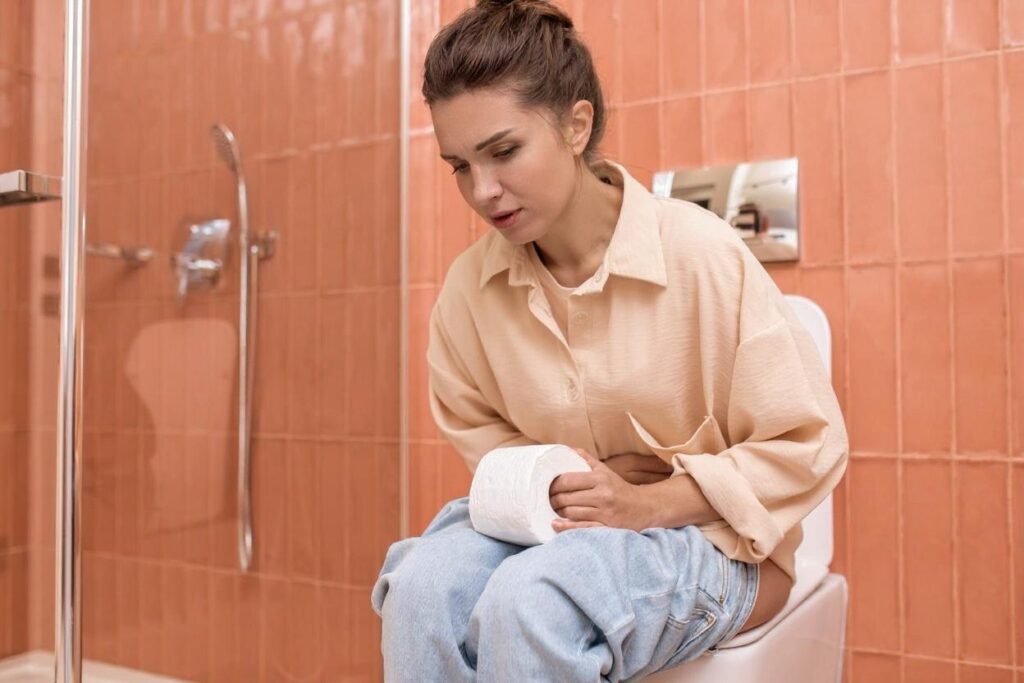Get quick relief with online UTI treatment
Delaying the care for a urinary tract infection can worsen your symptoms. Speak to an online doctor from your couch and start treatment in minutes. We’ll diagnose your symptoms, prescribe antibiotics if needed, and send the prescription straight to your local pharmacy so you can focus on healing.

- 24/7 walk-in clinic
- No wait time to see your doctor
- Treatment offered within 5 minutes

Trusted by millions for instant online care
Over 500,000+ Patients
5-star Doctor Ratings
4.8 Rating
20k+ App Reviews
4.6 Rating
1k+ Trustpilot Reviews
Seamless online UTI care. From first click to last dose
Our simple, four-step virtual process delivers complete UTI support, no matter where you are.
Prescriptions sent to local pharmacy
Get your UTI antibiotic sent electronically to your pharmacy before you hang up.
Personalized diet plan
Get a tailored food and fluid guide to soothe your bladder, flush out bacteria, and speed your recovery.
Urgent sick otes
We’ll issue a sick note on the spot for your UTI so you can take the time off you need without hassle.
How to get online antibiotics for a UTI?
Getting virtual care for a urinary tract infection is quick with Your Doctors Online. Here is how you can get online antibiotics within minutes:
Describe your Symptoms
Create your account and tell us about your symptoms and health history. For example, mention if you feel burning urination, increased frequency, or other UTI symptoms.

Consult with an online doctor
You’ll connect to a board-certified doctor via chat, audio, or video. The doctor will review your information, ask any follow-up questions, and prescribe medications, if appropriate.

Receive prescription
We will send the antibiotic prescription for UTI electronically to your chosen pharmacy within minutes. You can then pick up your medication right away and start treatment.


What is a urinary tract infection?
UTI is an infection of the urinary system affecting any part including the kidneys, ureters, bladder, and urethra.
What are strep throat symptoms?
Strep throat is a bacterial infection that, unlike a sore throat from a cold, develops suddenly and causes intense pain and inflammation. Common symptoms include:
- Pain or burning during urination
- Frequent urination
- Urgency to pee
- Lower abdominal discomfort
- Cloudy or bloody urine
What Causes UTIs?
Most UTIs happen when bacteria, usually E. coli from your gut, get into your urinary tract, through the urethra, and into your bladder, where they multiply and cause an infection. You are at higher risk of getting a UTI if:
- You are a female
- You are on birth control pills
- You are pregnant or going through menopause
- You have poor hygiene
- You have an enlarged prostate or kidney stones
- You are engaged in unsafe sexual practices
24/7 online treatment for UTI
When a UTI flares up, you shouldn’t have to rearrange your life for care. That’s why Your Doctors Online connects you instantly with a doctor who can diagnose and treat your infection from wherever you are, at home, at the office, or on the go. Here is how your online treatment for UTI will look:
- Online antibiotic prescription: Antibiotics, such as Sulfamethoxazole and Nitrofurantoin, are the first line of treatment for UTIs in women, and Ciprofloxacin in men.
- Follow-Up & dose tweaks: We check your progress and adjust your treatment as needed, so you always know you’re on the right track.
- Practical self-care: Get expert tips on hydration, pain relief, and bladder support to avoid future infections
Delaying treatment can allow the infection to reach your kidneys, raise your blood pressure, and lead to repeat flare-ups. Start your virtual visit now to stop symptoms before they worsen.

Antibiotics for UTI we prescribe online
Macrobid
Antibiotic
Bactrim
Antibiotic
Monurol
Antibiotic
Keflex
Antibiotic
Amoxicillin
Antibiotic
Ciprofloxacin
Antibiotic
Macrobid
Antibiotic
Bactrim
Antibiotic
Monuro
Antibiotic
Keflex
Antibiotic
Amoxicillin
Antibiotic
Ciprofloxacin
Antibiotic
Meet our online doctors prescribing antibiotics for UTI

Dr. Asim Cheema
Internal Medicine
Dr. Cheema is a distinguished, board-certified Cardiology and Internal Medicine specialist who brings nearly 30+ years of extensive clinical experience to his practice. A proud graduate of Nishtar Medical College, he has been operating as an independent practitioner since 2001. He focuses on the diagnosis, management, and long-term care of complex cardiovascular and internal medicine conditions.

Dr. Marsha Dunkley
Family Medicine
Dr. Marsha Dunkley has been committed to providing compassionate, comprehensive medical care to patients across a broad spectrum of health concerns for more than five years. Her clinical experience spans both chronic conditions such as diabetes, hypertension, and high cholesterol and acute illnesses, including the common cold, seasonal allergies, influenza, and COVID-19.

Dr. Sohail Cheema
Pediatrics
Dr. Sohail Cheema is a seasoned pediatrician with 30+ years of experience. A 1987 graduate of Nishtar Medical College, he’s recognized for patient-centered care and clear communication. He's a member of the Royal College of Physicians (UK & Ireland) and certified in Ontario. He practices at Halton Healthcare – Georgetown and St. Michael’s Hospital in Toronto.

Dr. Stotland Mitchell
Occupational Medicine
Dr. Stotland Mitchell is a board-certified Occupational Medicine physician with 5+ years of experience. He provides virtual care across all U.S. states and D.C., blending allopathic medicine with public health insights. His approach focuses on rapid symptom relief and long-term prevention, often resulting in faster recovery and improved health outcomes for his patients.

Dr. Mandy Leideman
Internal Medicine
Dr. Leideman is an internal medicine physician with 30+ years of experience, currently focused on long-term care and chronic disease prevention. Known for her ethical, research-based approach, she holds certifications in human research ethics. A graduate of UWO and U of T, she completed residency at St. Joseph’s and remains active in research and professional medical organizations.

Dr. Kieran Kettyls
Family Medicine
Dr. Kieran Kettyls is a compassionate family physician specializing in bariatric medicine, women’s health, and in-office procedures. Trained in Grenada, New York, and New Jersey, he provides care including PRP, viscosupplementation, vasectomies, and cyst removals. He founded an AHS-covered weight loss program focused on sustainable outcomes and delivers personalized, results-driven care.
Frequently asked questions
Where to get UTI antibiotics?
You cannot get antibiotics for a UTI without seeing a doctor. Once you have a valid prescription, you can get the medications at any local pharmacy. Simply complete a telehealth visit or in-person exam, and your doctor will e-prescribe the appropriate antibiotic directly to the pharmacy of your choice. Most local pharmacies stock first-line UTI medications and offer same-day pickup or delivery options.
How fast will I feel better after starting the antibiotic?
Antibiotics can help you get rid of a UTI quickly. You may start feeling better within 24-48 hours of taking the antibiotics. Research suggests that about half of patients felt some symptom improvement as soon as 6 hours after the first antibiotic dose, and 87–90% had improvement in 2 days. However, the exact time can vary depending on the severity of your symptoms. Here are a few signs indicating that the UTI is going away with antibiotics:
- Reduced pain and burning sensation
- Less frequent urination
- Decreased lower abdominal pain
Can a UTI go away on its own?
Yes, about 20% of mild UTI symptoms can go away on their own. Drink plenty of water as it helps to flush out the bacteria causing the UTI. But most UTIs should be treated with antibiotics to ensure the bacteria are cleared and prevent future infections.
Is telehealth UTI treatment effective?
Yes, telehealth UTI treatment, when done by licensed physicians, is safe and effective, just as in-person treatment is. A PLOS One study found that 89.7% of patients had symptoms clear up within seven days, matching traditional care results.
Can you have sex with a UTI?
Although UTI is not sexually transmitted, it is still recommended not to have sex when you are experiencing UTI symptoms. Having sex while you’re infected can worsen irritation and potentially introduce new bacteria into the urinary tract. It’s best to avoid sexual activity until you’ve started antibiotics and your symptoms have improved.
What is the difference between a urinary tract infection and bladder infection (Cystitis)?
A urinary tract infection involves any or all of the following areas: the ureters, kidneys, urethra, and/or bladder. A bladder infection (Cystitis), however, is limited only to the urinary bladder.
Are bananas good for urinary tract infections (UTI)?
Bananas don’t cure UTIs, but they can support recovery. Their vitamin C boosts your immune response, and their fiber helps prevent constipation, which can otherwise put extra pressure on your bladder and worsen symptoms.
How do I know if my UTI is severe?
High fever, excruciating pain in the sides or lower back (which indicates kidney involvement), flushed, heated, or coloured skin, and mental changes or confusion in elderly persons are all symptoms of a severe UTI.
How long does a UTI stay without antibiotics?
Sometimes, the invasive bacteria can be eliminated by your body’s immune system without using drugs. Most UTI sufferers receive relief within 1 to 2 days after antibiotic treatment. Urinary tract infection, however, can persist without medication for around a week or more.
Can I get UTI medications over the counter?
Over-the-counter medications such as Pyridium can relieve UTI symptoms, but don’t clear the infection. Only prescription antibiotics (e.g., nitrofurantoin, trimethoprim/sulfamethoxazole) can kill the bacteria causing a UTI. Always consult a licensed physician in person or via telehealth before starting antibiotics to ensure effective treatment and avoid antibiotic resistance.
What is the leading cause of UTI in females?
The leading cause of urinary tract infections in females is the proximity of the urethra to the anus and a shorter urethra that makes it simpler for bacteria from the digestive system, notably Escherichia coli (E. coli), to enter and infect the urinary tract. In addition, women who engage in sexual activity, are pregnant, going through menopause, or use certain forms of birth control, including diaphragms or spermicides, are at risk of developing UTIs.
How can I prevent future UTIs?
Following evidence-based strategies can help reduce your risk of getting another UTI:
- Drink plenty of fluids, especially water, throughout the day.
- Don’t hold urine too long, as retained urine can promote bacterial growth.
- Try to urinate soon after intercourse.
- Steer clear of douches, harsh soaps, or perfumed feminine hygiene sprays in the genital area.
- Avoid extremely tight-fitting pants when possible.
If you have more than three episodes of UTI in a year, or two or more in 6 months, or see blood in urine or when you wipe, talk to a doctor.




